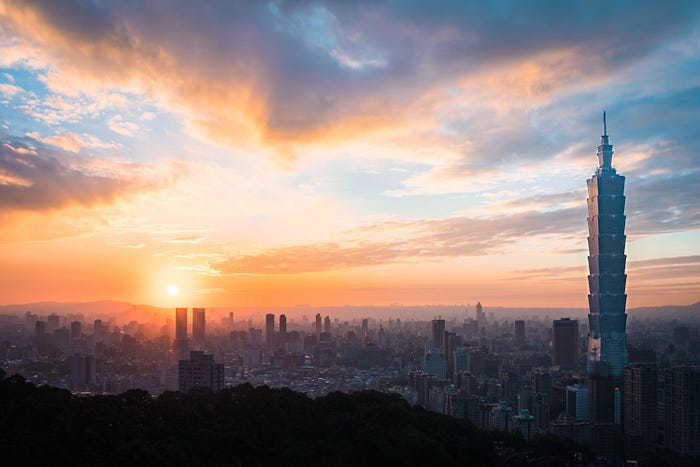The People’s Republic Army doesn’t need a battlefield to fight a battle.

“Chinese invasion of Taiwan may come sooner than expected,” announced Axios yesterday, breaking the bad news many foreign policy experts have warned might be coming.
“The Chinese government has repeatedly vowed to take control of the self-governing island, by force if necessary, and it reacts furiously to any gesture that seems to treat Taiwan as an independent state,” concluded Axios.
“U.S. Officials Grow More Concerned About Potential Action by China on Taiwan,” wrote Edward Wong, David E. Sanger and Amy Qin for the New York Times on July 25, 2022. “The Biden administration is watching for any moves by China to close off the Taiwan Strait, and they would prefer that Nancy Pelosi cancel her planned trip.”
House Speaker Nancy Pelosi’s scheduled trip to Taiwan is only the latest bone of contention between the U.S. and Chinese Communist Party leaders.
Looking at the current geopolitical state of the world, it’s easy to understand why world leaders are worried.
When Vladimir Putin broke ranks with the European Union, the United States and other allies to launch a full-scale military invasion into Ukraine, it may have been only the opening salvo in a new era of mounting global and region conflicts.
The landscape of the global economy, political factions, corporate interests; so many major shifts have taken place over the course of the COVID19 pandemic, the world scarcely looks as it did three years ago.
The European Union has been badly weakened; Germany’s heavy dependence on Russian energy passed through the Nord Stream 2 pipeline at the pleasure of Vladimir Putin is only the latest blow.
Brexit, the EU’s COVID19 response in places like Italy, and myriad economic challenges have badly shaken the foundations of the union and the agreements on which it stands over the past five years. Now, petroleum dependence, coupled with a 10,000 mile supply line thanks to a glut of globalization, has been revealed as a major national security weakness.
One lesson to be gleaned from Russia’s move into Ukraine, long predicted by the same foreign policy experts and watchdogs now warning of an imminent attack on Taiwan, is that it didn’t happen overnight.
Putin didn’t decide to invade Ukraine on a whim; it’s obvious now in retrospect he has been planning this war for years, preparing the way, laying the groundwork, preventing Ukraine from being accepted into the fold of NATO.
Russian intelligence and military agencies had been working to undermine Ukraine from within for many years prior to February 2022. Putin was merely biding his time in the long decade before launching his recent attack, waiting for the perfect opportunity.
COVID19 created that opportunity. With world powers weakened, distracted and dealing with the aftermath of a global pandemic, a once-in-a-generation window opened for any despotic world leaders eyeing conquest.
Likewise, if the CCP invades Taiwan tomorrow, it will not simply be an attack from without. The CCP has already invaded Taiwan- from within. Among other weakening tactics, it has used information warfare strategies to undermine political candidates opposed to reunification with China and infiltrate the Taiwanese political party pushing for reunification.
Russia did the same to the Ukraine for over a decade before marching on Kiev.
A Russian disinformation campaign designed to emphasize corruption in Ukraine is one of the key reasons the beleaguered nation was kept out of NATO. It isn’t that there isn’t corruption in Ukraine- there is. But all the former USSR states grappled with corruption when the Iron Curtain finally fell. Why the special treatment for Ukraine in particular?
The answer is information warfare.
The CIA, and many other military and intelligence agencies have long used a very powerful tactic to undermine foreign adversaries and unfriendly regimes; the British Raj long used it to control the people of India.
Divide and conquer.
It works: Find an existing schism in society, a place where people already disagree bitterly, where strife already exists, insert a wedge, or preferably, a few wedges, and just push.
By deepening divisions in India’s pre-existing caste system and exploiting long-simmering tensions between religious and ethnic groups, a few thousand British soldiers were able, for a time, to control the fortunes of over a billion people- that’s how powerful divide and conquer can be.
It’s the reason Mahatma Gandhi was so revered to the cause of India’s independence from Great Britain. He was able to bridge the artificially-widened divide and unite the people long enough to see the British out.
Incidentally, as a point of history, British General Charles Cornwallis, who famously surrendered via proxy to American General George Washington, did not return in defeat to England after losing the Revolutionary War.
In fact, he didn’t return at all. He was merely reassigned; to India.
That isn’t to say cultural, social and racial divisions didn’t already exist in India before the Raj. They did. The divide and conquer tactic can’t create what isn’t there. People aren’t stupid. They can’t be made to believe in things that don’t exist, at least not forever.
But they can have their perspective skewed by a clever bit of manipulation.
The content farms, hacking operations, election interference, ideological capture, and other nefarious information warfare strategies used by the Russian government in advance of its invasion of Ukraine are as nothing compared to the massive information warfare operation of the Chinese Communist Party.
If foreign policy experts look dispassionately at the warfare already being waged against Taiwan by the Chinese Communist Party, it is obvious the invasion of Taiwan has already begun.
(contributing writer, Brooke Bell)